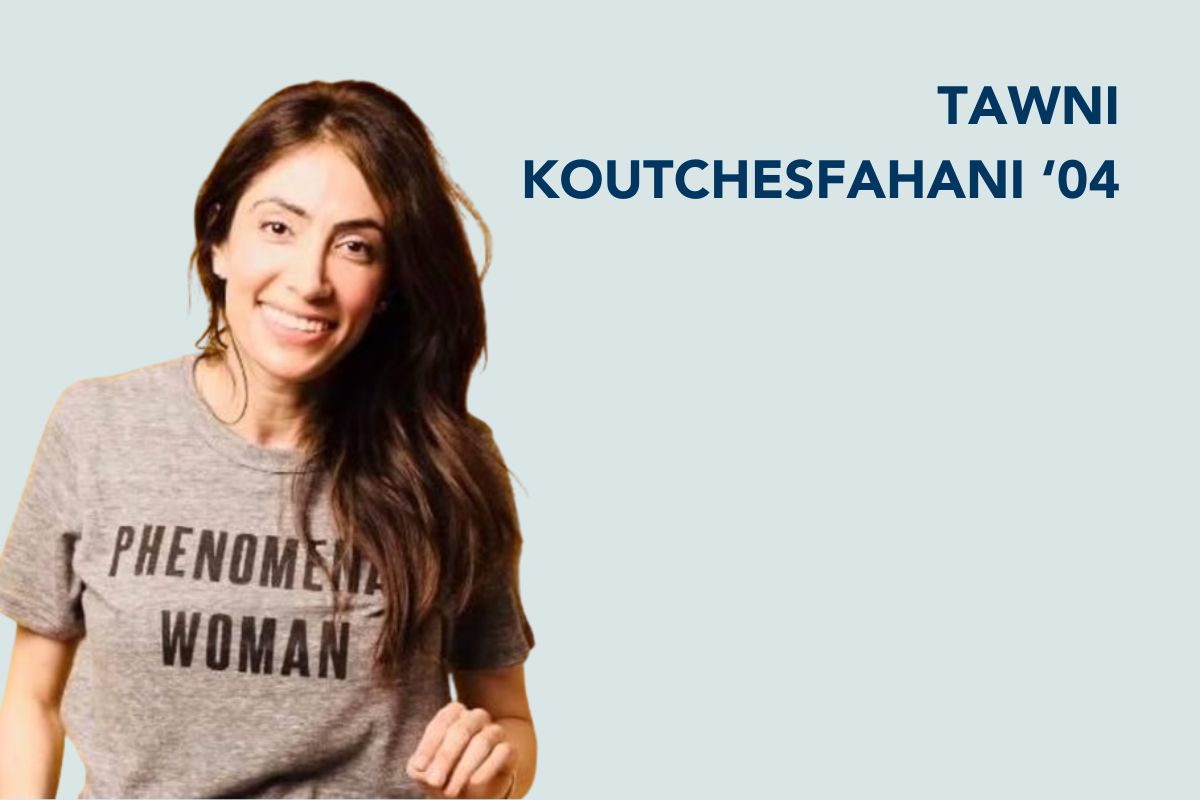
Recognized as one of the Most Influential Women in the Bay Area, Tawni Koutchesfahani ‘04 began her career journey at UC Santa Barbara as an undergraduate Chemical Engineering student. She reflects fondly on the diversity of experiences she immersed herself in as a Gaucho and strives to provide similar professional and social guidance for current students as a member of the Alumni Board of Directors. As a leader in a male-dominated industry, Tawni is passionate about her work, which she describes as revolving around human connection and communication.
Q: What does your role as the Head of Cell Therapy Manufacturing and Supply Chain at Nkarta look like on a typical work day?
In these post-COVID times, there is a lot happening on calls. I’m constantly in communication with my own team, as well as external manufacturing facilities, vendors, and other parts of the supply chain. As the Head of Manufacturing, there are a lot of operational pieces that need to happen in a harmonious rhythm so my days are fully packed with touchpoints. It is all about connection and communication and without that we’d have nothing; I think that sentiment goes for most businesses.
Q: What was your most rewarding academic experience during your time as a Gaucho undergrad?
I have to give a shout-out to all of my professors because they were very tough in a great way. They pushed us academically and I reflect on the time with love and care. Trying to connect applicability to all of the theories I was learning was a challenge, but those efforts were so rewarding once I got into the workforce.
Q: What do you think is the most important skill you’ve learned throughout your professional career?
There are a lot of critical skills that I’ve added to my toolkit in the 20 years since I left Santa Barbara, but a lot of them come down to having a lot of patience. It takes time to develop a skill like problem solving because that means you have to be comfortable with taking the time to try new methods and see what sticks. If you don’t have a mindset framed around patience, problem solving is going to be much more challenging.
Q: What does being named one of the Most Influential Women in Bay Area Business mean to you?
In the best way, it is very emotional! Santa Barbara gave me the start of my own financial freedom and career, so to have built on that foundation in such a challenging domain makes me feel proud. Getting this recognition was a moment in time where I could reflect on my professional years and how hard I pushed myself. There are not a lot of women working in Bio Manufacturing, which is part of the reason I took it on in the first place. There are always going to be people who tell you ‘maybe you should do something else’ but I am dedicated and never allow others to dictate where I should be or what I should do.
Q: What inspired you to join the UCSB Alumni Board of Directors?
In many ways, UC Santa Barbara gave me the life I have now. It was very important to me to go to college. After graduating, being a Gaucho opened up new doors for me and I felt as though joining the board was a way to give back to the community that has given me so much.
Q: What are you most looking forward to contributing to the UCSB community as an Alumni Board member?
At the end of the day, it is all about the students. I’m really trying to create a wave of engagement with alumni. I’d love to see more connections between incoming students and alumni, where the latter can act as motivation. We’re also trying to facilitate a way for our alumni to stay connected as they spread globally post-grad.
Q: What would you tell a prospective student considering attending UCSB?
It comes down to three elements. First, self-identify what you want to educate yourself on in the next four years. Think about how you want to create change in this world and find a degree that can facilitate that. Secondly, immerse yourself in the different cultures and communities on campus. Don’t just find the people you are used to - stretch yourself! Lastly, be an active part of the community with your T.As and professors. Don’t look at them as separate from you. Some are moms and some brothers– they are human and they were students too! They are there because of the students. Foster those relationships because they are helpful and come in handy.